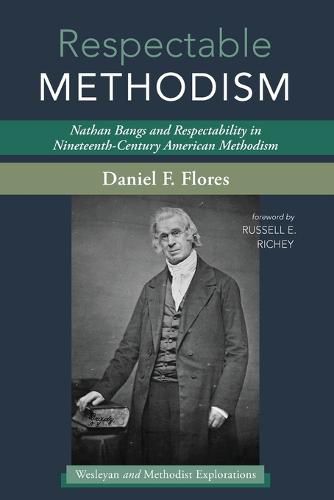Readings Newsletter
Become a Readings Member to make your shopping experience even easier.
Sign in or sign up for free!
You’re not far away from qualifying for FREE standard shipping within Australia
You’ve qualified for FREE standard shipping within Australia
The cart is loading…






This title is printed to order. This book may have been self-published. If so, we cannot guarantee the quality of the content. In the main most books will have gone through the editing process however some may not. We therefore suggest that you be aware of this before ordering this book. If in doubt check either the author or publisher’s details as we are unable to accept any returns unless they are faulty. Please contact us if you have any questions.
The Wesleyan-Methodist movement entered American history as a fragment of British Methodism. It quickly took on a new identity in the early republic and grew into a vibrant denomination in the nineteenth century. The transitions from the rugged pioneer religion modeled by Bishop Francis Asbury to the urbane religion of industrial America was by design the goal of influential leaders of the Methodist Episcopal Church. Nathan Bangs was perhaps one of the most significant of such leaders. He rose from obscurity to the ranks of power and influence by refining patterns of worship, expanding denominational publishing, and structuring ministerial education. This study is concerned with the development of respectability in American Methodism. It also explores questions on how Bangs and other leaders dealt with in-house conflicts on issues related to race, slavery, and the poor.
$9.00 standard shipping within Australia
FREE standard shipping within Australia for orders over $100.00
Express & International shipping calculated at checkout
This title is printed to order. This book may have been self-published. If so, we cannot guarantee the quality of the content. In the main most books will have gone through the editing process however some may not. We therefore suggest that you be aware of this before ordering this book. If in doubt check either the author or publisher’s details as we are unable to accept any returns unless they are faulty. Please contact us if you have any questions.
The Wesleyan-Methodist movement entered American history as a fragment of British Methodism. It quickly took on a new identity in the early republic and grew into a vibrant denomination in the nineteenth century. The transitions from the rugged pioneer religion modeled by Bishop Francis Asbury to the urbane religion of industrial America was by design the goal of influential leaders of the Methodist Episcopal Church. Nathan Bangs was perhaps one of the most significant of such leaders. He rose from obscurity to the ranks of power and influence by refining patterns of worship, expanding denominational publishing, and structuring ministerial education. This study is concerned with the development of respectability in American Methodism. It also explores questions on how Bangs and other leaders dealt with in-house conflicts on issues related to race, slavery, and the poor.